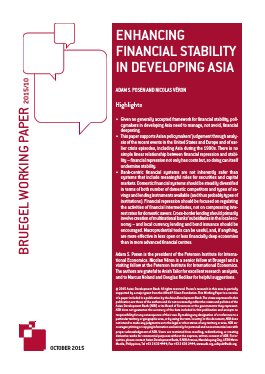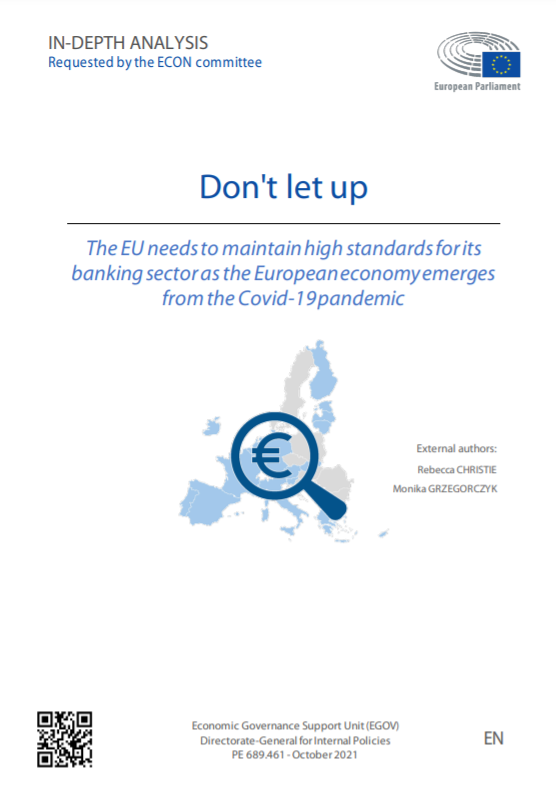Working Paper
Enhancing financial stability in developing Asia
This paper outlines guidelines for policymakers pursuing financial stability in developing Asia. It aims at supporting Asian policymakers’ judgment by providing policy views and recommendations that are based on the analysis of the recent sequence of events in the United States and Europe and of earlier crisis episodes, including those in Asia during the 1990s
Highlights
• Given no generally accepted framework for financial stability, policymakers in developing Asia need to manage, not avoid, financial deepening.
• This paper supports Asian policymakers’ judgement through analysis of the recent events in the United States and Europe and of earlier crisis episodes, including Asia during the 1990s. There is no simple linear relationship between financial repression and stability – financial repression not only has costs but, so doing can itself undermine stability.
• Bank-centric financial systems are not inherently safer than systems that include meaningful roles for securities and capital markets. Domestic financial systems should be steadily diversified in terms of both number of domestic competitors and types of savings and lending instruments available (and thus probably types of institutions). Financial repression should be focused on regulating the activities of financial intermediaries, not on compressing interest rates for domestic savers. Cross-border lending should primarily involve creation of multinational banks’ subsidiaries in the local economy – and local currency lending and bond issuance should be encouraged. Macroprudential tools can be useful, and, if anything, are more effective in less open or less financially deep economies than in more advanced financial centres.

















